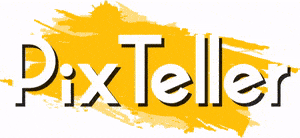The Business Value of Streamlined Knowledge Sharing
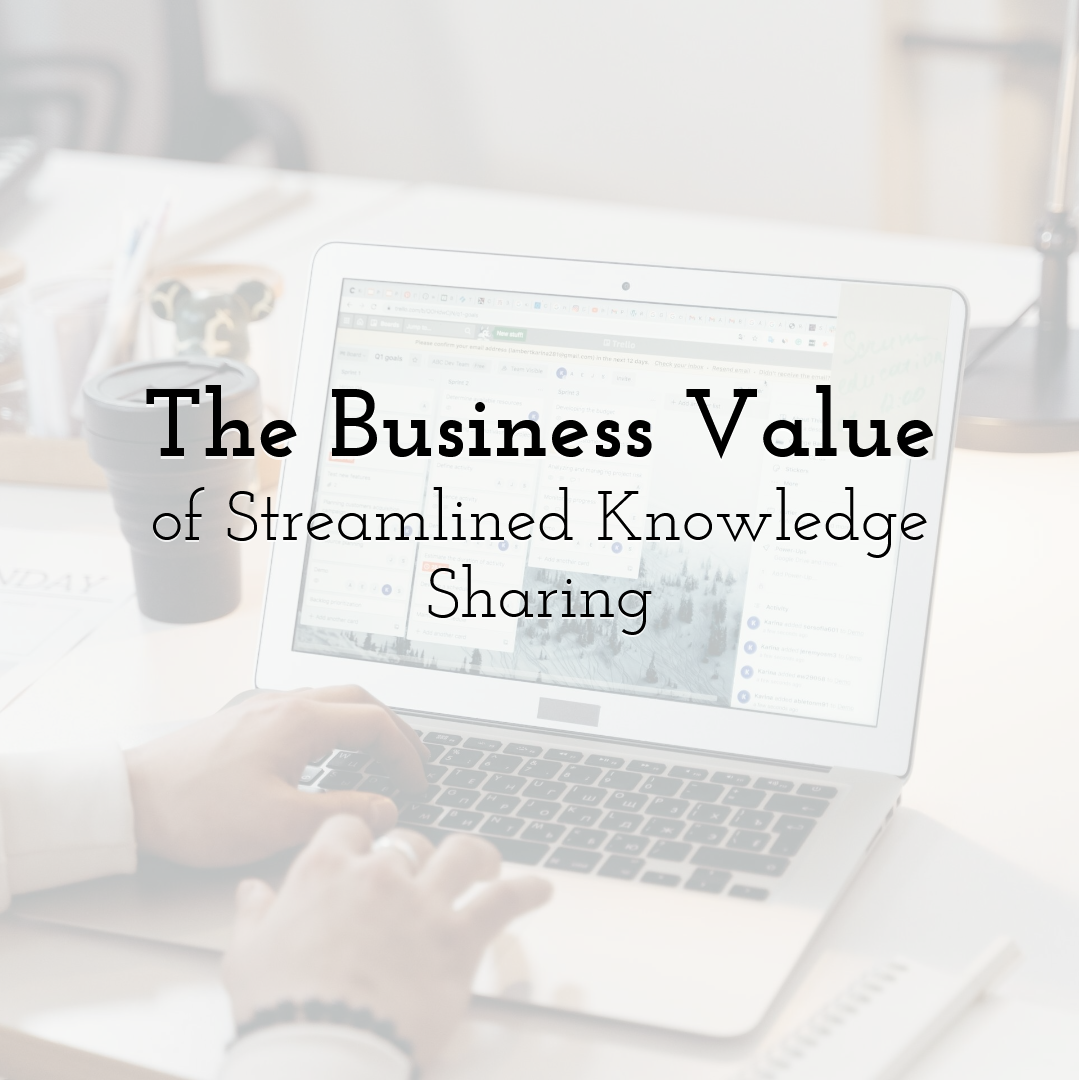
Within fast-growing organizations, your organization’s capacity to document and share knowledge can be the distinction of agility versus stagnation. Teams that lean on disparate files, casual conversations, or systems that operate in a vacuum tend to spend excessive time looking for relevant information, doubling up on work, or reinventing conversations that have already taken place. Ultimately, this leads to inefficiencies, misalignment, and lost opportunities for growth.
To overcome this, companies are investing in project management tools that centralize information and ensure it flows seamlessly across the business. Streamlined knowledge sharing not only reduces wasted effort but also builds a foundation for innovation, resilience, and long-term success.
Lark Wiki: Capturing institutional knowledge
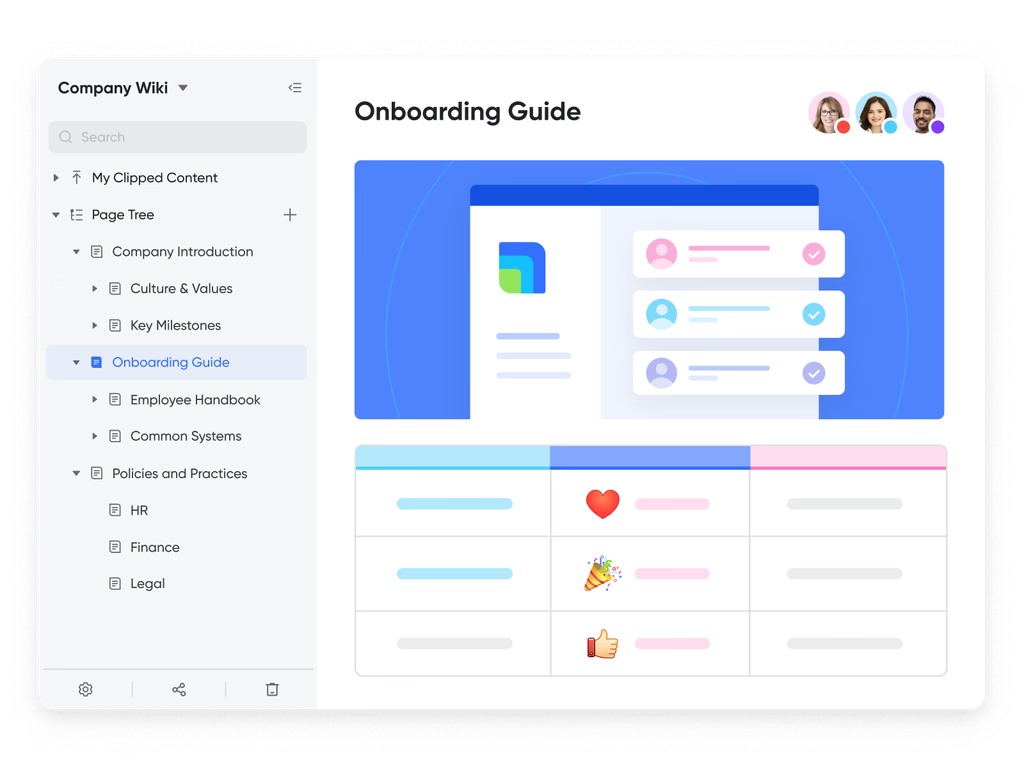
One of the most significant risks facing growing organizations is the loss of institutional memory. Sometimes when employees move on, they take undocumented knowledge with them. Policies, valuable best practices, and lessons learned are scattered throughout direct messages or become dormant in old files.
Lark Wiki offers a way to prevent this decay by creating a permanent, structured repository of knowledge for the organization. Organizational knowledge can also be documented in the wiki, including onboarding guides, compliance protocol, or any standard operating procedures. This way, teams can ensure that organizational knowledge is consistent across departments, and team members can find knowledge using hashtags for easy searching. Team members can share the Wiki pages with other team members who need to find the information or when responding to questions. Moreover, team members can link to a Wiki entry within Messenger and Calendar applications, embedding the knowledge of the Wiki even deeper into organizational workflow. By recording insight and knowledge into the Wiki, the organization ensures institutional memory is a maintained resources rather than a fading resource.
Lark Docs: Turning documents into living playbooks
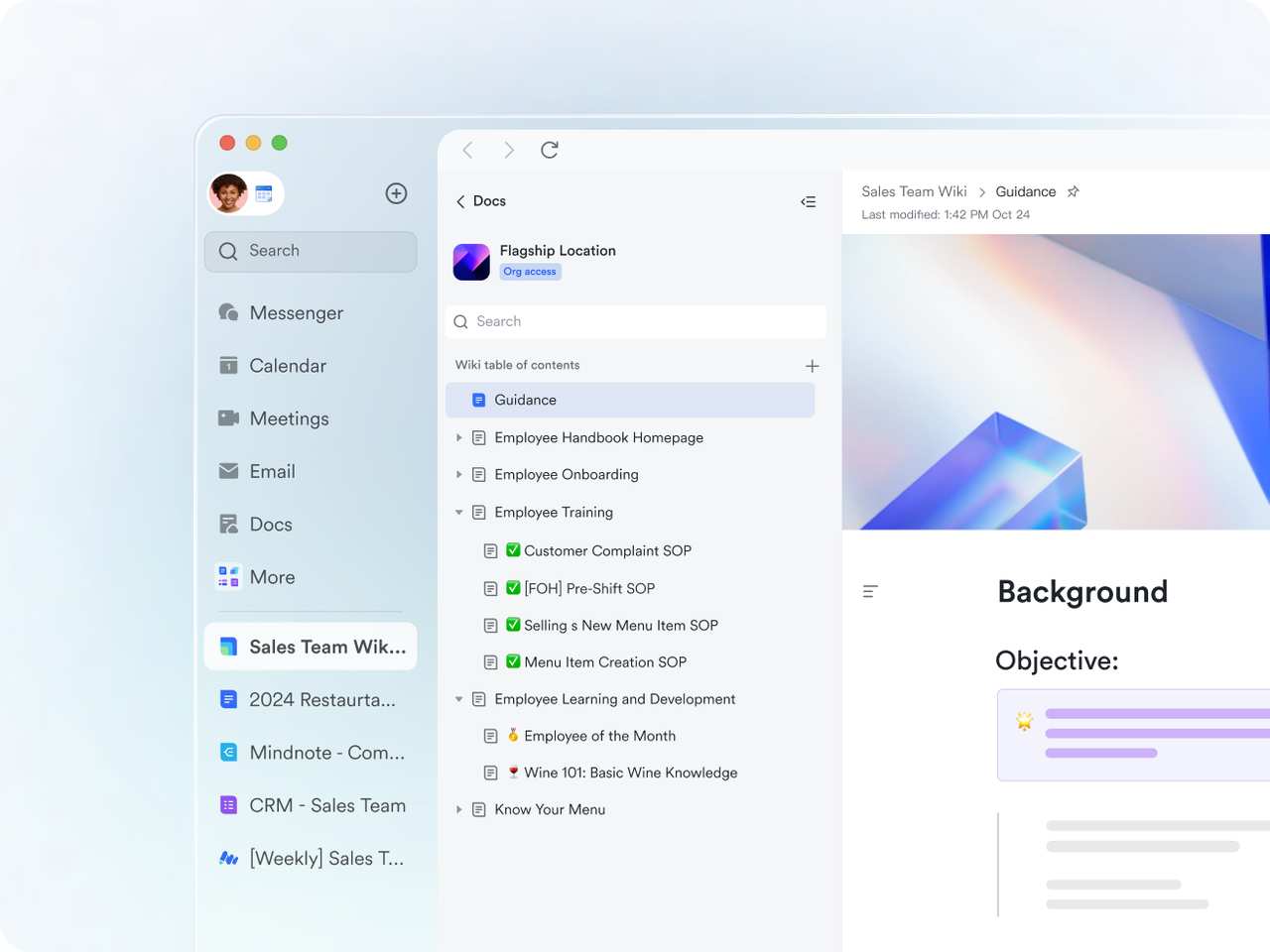
The sharing of knowledge doesn’t end with documentation of static information; it needs to change as priorities change. Traditional documents often break down because of slow updates and employees end up working from an older version.
Lark Docs enables co-authorship and the evolution of documentation. Teams can edit proposals, reports, and training material together, synchronously and in real-time, while never needing to clarify a version. Comments are contextualized to document, and version history preserves accountability for how the content has evolved, transparently providing insight to reason and ownership. Docs also sync with Wiki or Base to maintain links to other systems of knowledge. Rather than static files, Docs create organic playbooks that change-able as strategies and practices change.
Lark Messenger: Real-time knowledge exchange
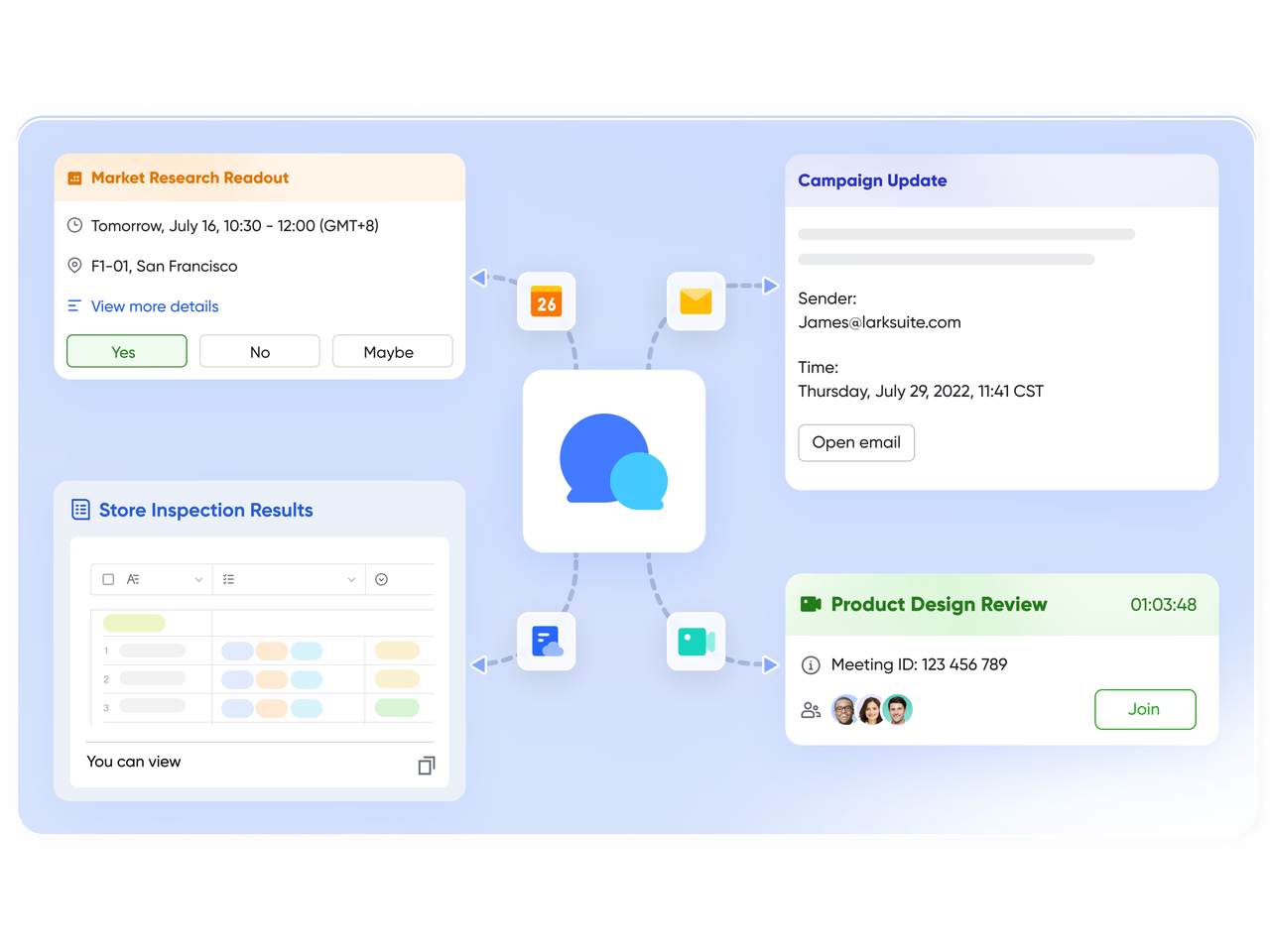
Even when documentation is centralized, knowledge is often exchanged informally in everyday interactions. In the absence of some orderly pathway, sage advice that is shared in chat threads is likely to be diluted in the chatter.
Lark Messenger solves this problem through real-time conversations that are accountable and tethered to a project and record. Purposeful channels for Departments or initiatives keep insight organized. Pinned posts clarify critical knowledge, while tagging shares insight with the correct individuals within seconds. Untagged and public, searchable records keep conversations alive, allowing new team members to see what past team members discussed. The Messenger turns every day exchanges into a curated flow of knowledge that improves transparency and nimbleness.
Lark Approval: Ensuring knowledge-driven decisions
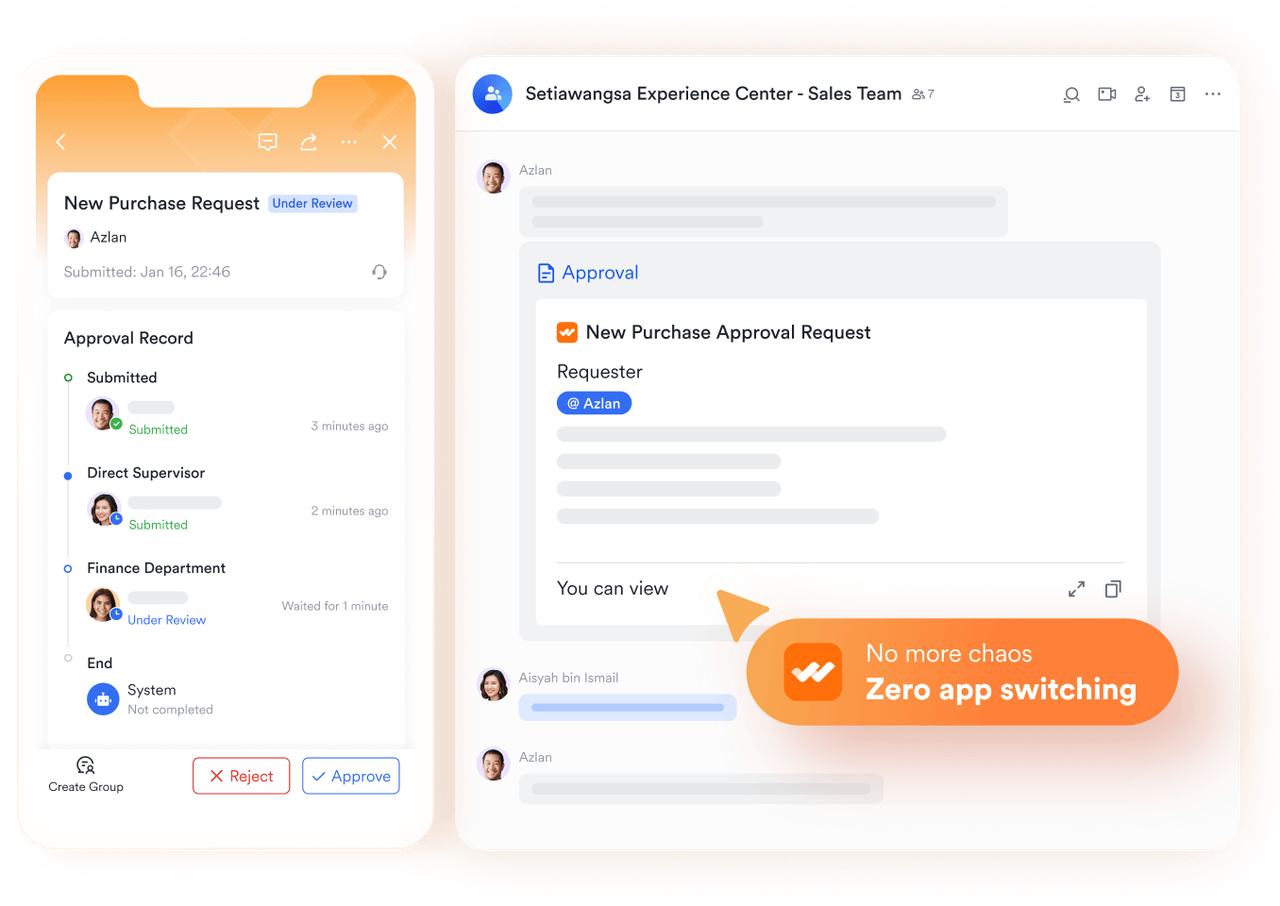
Knowledge sharing is the most effective when that sharing leads to decisions; without an organized means for validation, the organization risks decisions based on partial and poorly vetted information. Approvals related to policies or other insights often get buried in email threads and lead to confusion about what has been reviewed versus approved.
Lark Approval ensures clarity by embedding governance into knowledge-driven workflows. Employees can submit policy changes, new process guidelines, or compliance updates for structured review. Managers can log approvals with full visibility, and the approval window show pending requests for accountability. Every action is recorded, creating an auditable trail. To accelerate this process, Approval supports an automated workflow that routes requests to the right stakeholders instantly. This ensures knowledge is not only shared but also validated before it drives execution.
Lark Meetings: Knowledge shared in context
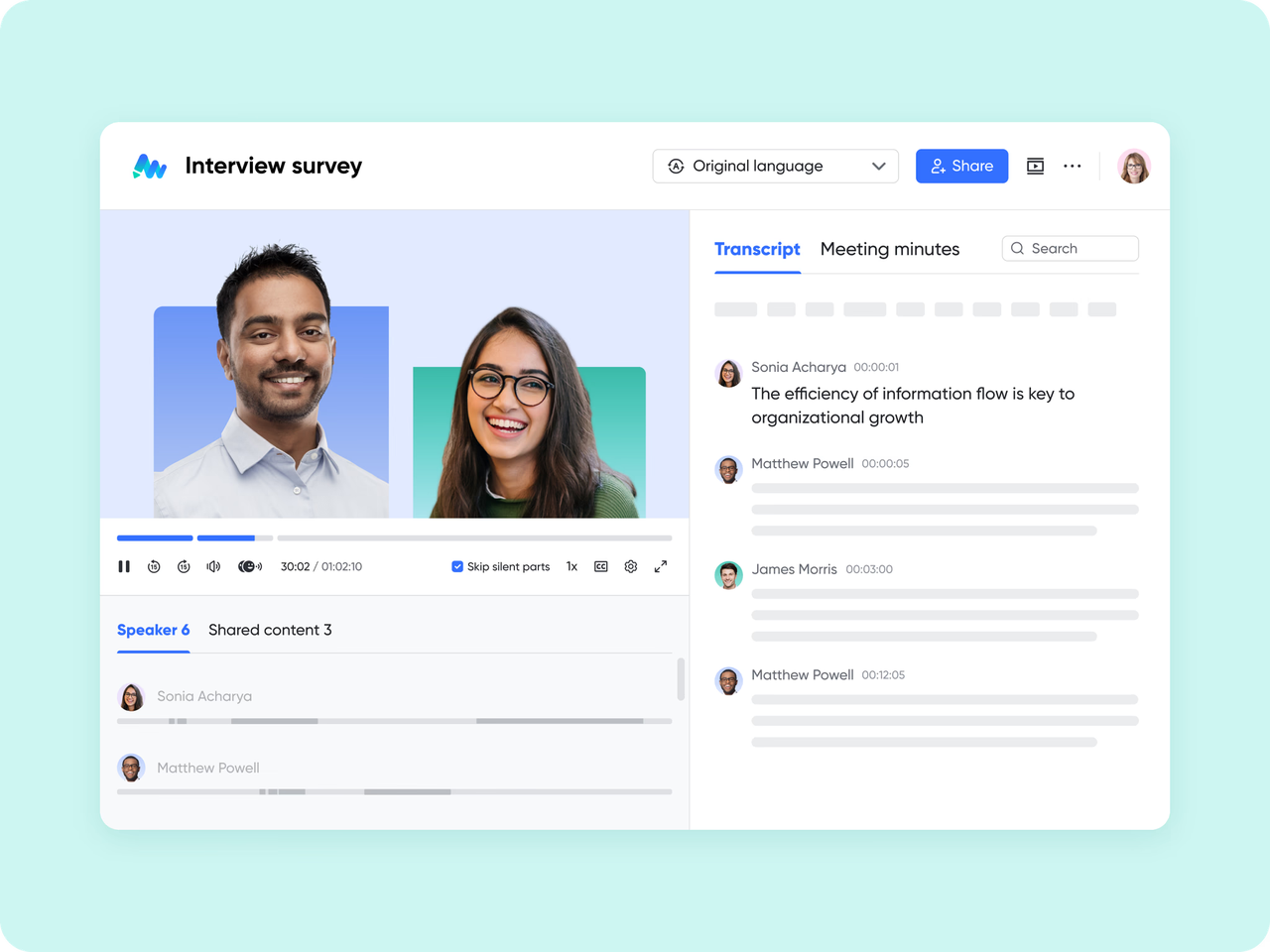
Some of the most valuable knowledge is gained in conversations (project retrospectives, team brainstorming, cross department review, etc.). The challenge is ensuring those insights don’t disappear once the meeting is done. Lark Meetings ensures that knowledge is captured and usable. During the meeting, teams can co-edit collaborative notes that capture the lessons learned and even assign ownership in real-time. Meeting recordings create a historical record of insights, and in-meeting chat allows any necessary clarifications without breaking up the flow. Linking notes to Docs or Base will allow insights to be included as part of a larger system instead of as a standalone takeaway. While meetings stop being ephemeral discussions, they become structured opportunities to capture and reuse knowledge.
Lark Base: Building a structured knowledge hub
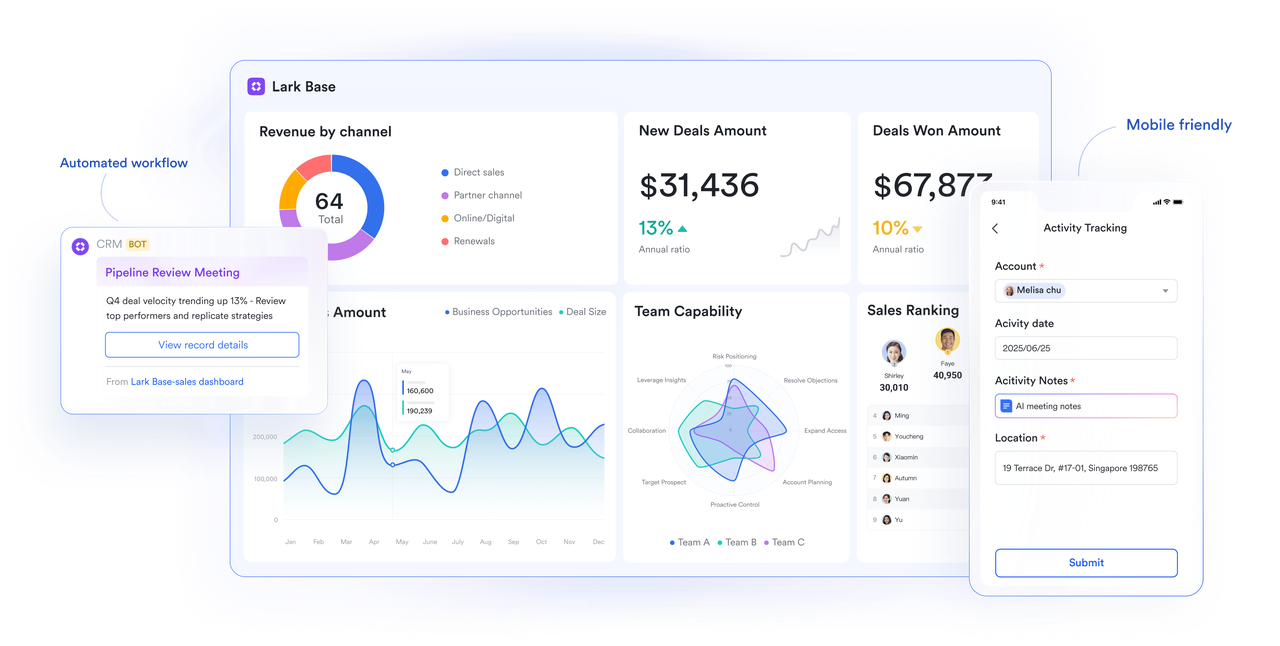
Ultimately, knowledge sharing depends on having a reliable system of record. When information is scattered, employees duplicate work, and leaders lack visibility into critical data.
Lark Base offers the ability for organizations to create customizable databases that can capture knowledge across teams. You can use Base for tracking customer insights, keeping track of training completions, or as a record of compliance. Base centralizes everything in one location.
Key metrics are highlighted in dashboards, and filters and search make retrieval simple. Your entries can be linked to information on Tasks, Approvals, or Docs, so that knowledge doesn't sit in a vacuum. With these capabilities, Base offers the same reliability giving organizations a structured hub that scales with their growth.
Final Thoughts:
Streamlined knowledge sharing is not just about making knowledge accessible—it is about ensuring that knowledge enables execution, accountability and improvement. Businesses that use disparate tools and channels run the risk of losing valuable insights and duplicating effort versus an organization that levels up knowledge through a central knowledge base, adding resilience and speed to top line growth.
The Wiki captures institutional memory; Docs transforms policies into living playbooks; Messenger facilitates real-time exchanges; Approval validates decisions through structured workflows; Meetings create context for capturing insights; and Base adds structured clarity—all within Lark, a modern project management software built to unify collaboration and execution.
For organizations in growth mode, the business value of streamlined knowledge sharing is stark – it reduces inefficiencies, retains domain expertise, and creates a means of operating with confidence for every employee. When knowledge is embedded and enabled in workflows that are connected, businesses can move faster, smarter, and with more clarity - ensuring growth in the business comes with alignment, and not confusion and ambiguity.
Until next time, Be creative! - Pix'sTory
Recommended posts
-

How to Start a Photography Business With No Experience - The Ultimate Gui...
Read More › -

The Business Value of Streamlined Knowledge Sharing
Read More › -

How Secure Payments Enhance User Experience on Your Website
Read More › -

Landing Page Design Tips You Should Follow Today
Read More › -

5 Major Usability Issues at the Design Stage
Read More › -

How User Experience Affects SEO: Understanding the Hidden Ranking Factor...
Read More ›
